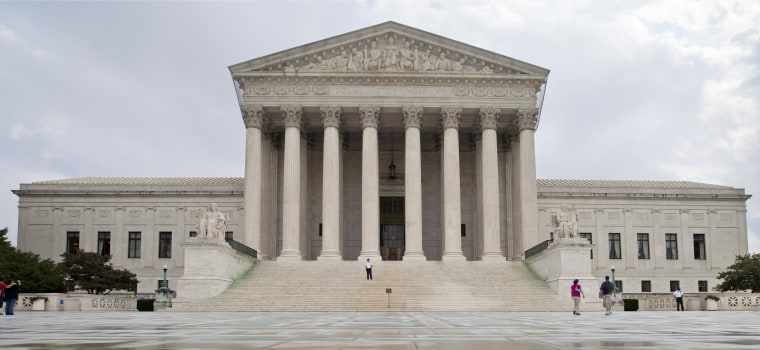The Supreme Court’s ruling in Schuette vs. Coalition to Defend Affirmative Action provides the latest chapter in the nation’s ongoing debate about racial preferences. The court voted 6-2 (while Justice Elena Kagan recused herself) that a state can outlaw the use of affirmative action at its higher education institutions.
This case centers on a challenge to the 2006 Michigan ballot initiative that enacted a state constitutional amendment that forbade the granting of “preferential treatment” on the basis of race, ethnicity, gender, color, or national origin at any of its state universities. The Coalition to Defend Affirmative Action argued that this measure effectively eliminated affirmative action, which the coalition believes to be unconstitutional at the federal level and in violation of the Fourteenth Amendment that guarantees equal protection under the law.
Essentially, it is this organization's position that the majority of an electorate cannot abide by the Constitution while voting in a manner that disenfranchises a minority group.
The specificity of the ruling is important to understanding the impact of Tuesday’s decision. The Supreme Court made no determination on the constitutionality of affirmation action itself. Instead, it held that a state has the right to ban racial and gender preferences as determined by its people in a democratic process. To date, six states have banned affirmative action in higher education as a result of voter referendums – Arizona, California, Michigan, Nebraska, Oklahoma and Washington.
Fundamentally, on this issue of race, the court found in favor of states' rights to decide what makes up "discrimination." In the plurality opinion penned by Justice Anthony Kennedy, the court determined “that the courts may not disempower the voters from choosing which path to follow” in determining this, and the case was “not about how the debate about racial preferences should be resolved. It is about who may resolve it.”
The answer of the Supreme Court seems to be that it is the states that have the right to "resolve it." Yet, this belief has a troubled past when it comes to protecting minority groups. For much of the nation’s history, the states' rights argument has been offered as justification for race-based laws and policies that disenfranchised large swaths of the American population. A state’s right to enforce racial discrimination was both the clarion call of 19th century proponents of slavery and 20th century segregationists.
However, supporters of democratically-established bans on racial preferences make the clear distinction that a ban on racial preferences is not an endorsement of discrimination, which was prohibited by federal law in the Civil Rights Act of 1964. Their contention is that, while there have been race-based wrongs in the past, times have changed and long-standing policies should be revisited.
The Court echoed this sentiment in writing, “Michigan voters acted in concert and statewide to seek consensus and adopt a policy on a difficult subject against a historical background of race in America that has been a source of tragedy and persisting injustice. That history demands that we continue to learn, to listen, and to remain open to new approaches if we are to aspire always to a constitutional order in which all persons are treated with fairness and equal dignity.”
Thus, the future of affirmative action is uncertain -- especially as the Court fails to offer the "new approaches" it says are needed in place of federal law. And many doubt, given our history, that states can be trusted to "learn, to listen, and to remain open" without federal oversight.
Justice Sonia Sotomayor’s dissenting opinion evinces this point, expressing the contrasting opinion of many that federal oversight is still needed to protect minorities. “For members of historically marginalized groups, which rely on the federal courts to protect their constitutional rights," she wrote, "the decision can hardly bolster hope for a vision of democracy that preserves for all the right to participate meaningfully and equally in self-government.”
If the latest two Supreme Court cases regarding affirmative action – the other being last year’s Fisher vs. University of Texas that was remanded to the lower courts – are any indication, this debate will continue.
--
Theodore R. Johnson is a writer based in Washington, D.C. who explores issues centered on race and politics. A former White House Fellow, he is a public policy doctoral candidate who holds degrees from Hampton and Harvard Universities.
